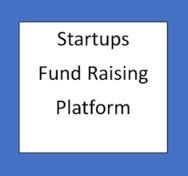Introduction
In today’s fast-paced world, the demand for increased efficiency, precision, and productivity across industries has led to the widespread adoption of automation systems. Whether it’s manufacturing, healthcare, agriculture, or logistics, automation has proven to be a game-changer. The beauty of modern automation lies in its adaptability—there are automation solutions for all requirements. In this article, we’ll explore the diverse range of automation systems that cater to a wide array of needs and industries.
1. Industrial Automation: Streamlining Manufacturing Processes
Industrial automation is the backbone of modern manufacturing. These systems utilize a combination of technologies, including robotics, sensors, and control systems, to optimize production processes. Key components of industrial automation include:
Robotic Arms: Robots perform tasks with precision and consistency, from welding and assembly to packaging and quality control.
PLCs (Programmable Logic Controllers): These devices control and monitor machinery, ensuring seamless operation and data collection.
SCADA (Supervisory Control and Data Acquisition): SCADA systems provide real-time data visualization and control over complex industrial processes.
2. Healthcare Automation: Enhancing Patient Care
Automation has also made significant inroads into the healthcare sector. Automation solutions in healthcare are designed to improve patient care, reduce errors, and streamline administrative tasks. Examples include:
Robotic Surgery: Surgical robots assist surgeons with unparalleled precision, reducing the invasiveness of procedures and improving patient outcomes.
Pharmacy Automation: Automated dispensing systems accurately and efficiently prepare medication doses, reducing the risk of errors.
Electronic Health Records (EHRs): EHR systems automate patient data management, enhancing medical records’ accuracy and accessibility.
3. Agricultural Automation: Revolutionizing Farming
Automation is transforming agriculture, making farming more efficient and sustainable. Agricultural automation solutions include:
Precision Agriculture: Automated tractors and drones enable precise planting, fertilizing, and harvesting, optimizing crop yields.
Livestock Monitoring: Sensors and automation systems track the health and well-being of livestock, improving animal welfare.
Irrigation Automation: Smart irrigation systems adjust water usage based on weather conditions and soil moisture, conserving resources.
4. Logistics and Warehousing Automation: Speeding Up Supply Chains
Automation has revolutionized logistics and warehousing, ensuring efficient and accurate movement of goods. Key solutions include:
Automated Conveyor Systems: These systems move products seamlessly through warehouses, increasing throughput.
Automated Guided Vehicles (AGVs): AGVs transport goods autonomously within facilities, reducing the need for manual labor.
Warehouse Management Systems (WMS): WMS software optimizes inventory management, order picking, and shipping processes.
5. Home and Office Automation: Simplifying Everyday Life
Automation is not limited to industrial settings; it’s also transforming homes and offices. Smart home and office automation systems include:
Smart Lighting: Lighting systems that adjust based on occupancy and natural light, saving energy and enhancing comfort.
Home Security Automation: Automated security systems provide remote monitoring, access control, and intrusion detection.
Office Productivity Tools: Office automation software streamlines tasks such as document management, scheduling, and communications.
Conclusion
Automation systems are no longer confined to a single industry or purpose. They have evolved to cater to diverse requirements across various sectors. From optimizing manufacturing processes to improving healthcare, enhancing agriculture, and simplifying daily life, automation offers solutions that are adaptable, efficient, and tailored to meet the unique needs of different industries. As technology continues to advance, we can expect even more sophisticated automation systems to emerge, further revolutionizing the way we work, live, and innovate.
NOTE: Obtain further insights by visiting the company’s official website, where you can access the latest and most up-to-date information:
https://www.siemens.com/global/en/products/automation/systems.html
Disclaimer: This is not financial advice, and we are not financial advisors. Please consult a certified professional for any financial decisions.

